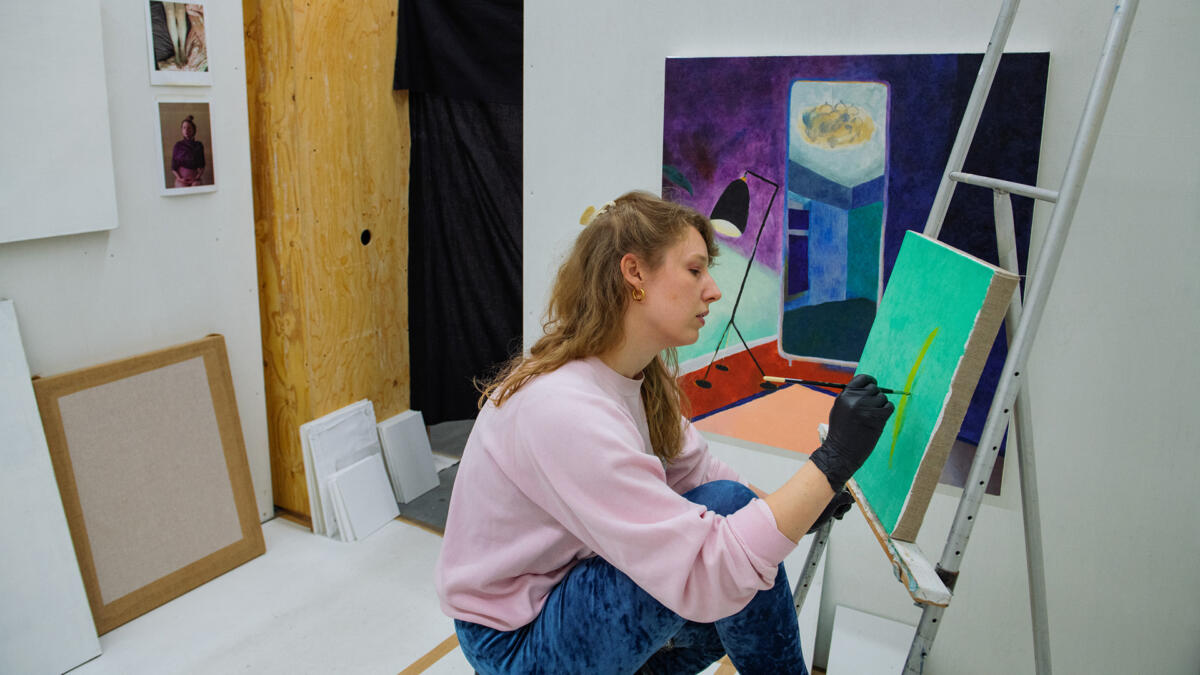Admissions chat 2023: Academy of Fine Arts
Interested in studying fine arts? Join our Instagram Live for a Q & A with our students!

The chat is organized and hosted by student ambassadors from the Academy of Fine Arts, on December 7th at 3pm Finnish time.
During the chat the student ambassadors, who represent different study areas of the academy, will share their experiences on studying in Finland and Uniarts Helsinki. A member of the teaching staff will also join in on the conversation and share insight on the study structure and the admissions process.
You will also have a chance to ask questions during the chat, directly from our students and staff.
The Academy of Fine Arts admissions chat will be organised online on Uniarts Helsinki’s Instagram account and it will be recorded. The language of the event is English.
The next application period to Uniarts Helsinki’s Academy of Fine Arts is on 3-17 January 2024. Studies begin in August 2024.
The chat is organized and hosted by student ambassadors from the Academy of Fine Arts, on December 7th at 3pm Finnish time.
During the chat the student ambassadors, who represent different study areas of the academy, will share their experiences on studying in Finland and Uniarts Helsinki. A member of the teaching staff will also join in on the conversation and share insight on the study structure and the admissions process.
You will also have a chance to ask questions during the chat, directly from our students and staff.
The Academy of Fine Arts admissions chat will be organised online on Uniarts Helsinki’s Instagram account and it will be recorded. The language of the event is English.
The next application period to Uniarts Helsinki’s Academy of Fine Arts is on 3-17 January 2024. Studies begin in August 2024.